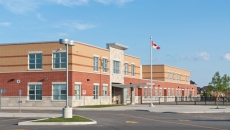OTTAWA - Rising prices at the pumps and grocery stores helped send inflation rates to a new pandemic-era high last month, as the consumer price index posted its largest year-over-year gain in 18 years.
Statistics Canada said Wednesday that the annual pace of inflation in October rose to 4.7 per cent, the largest year-over-year gain since February 2003.
Driving much of the increase were gasoline prices that rose 41.7 per cent compared with October 2020 for the fastest increase since this past May.
Excluding energy prices, Statistics Canada said the consumer price index would have been up 3.3 per cent last month compared with October 2020.
Economists said that between gasoline, a near four-per-cent bump in food prices, particularly for meat, and rising housing costs, key drivers of inflation are areas Canadians may not be able to easily curb spending.
"It's not necessary that they will pull back (on spending) because they still have significant excess savings that they've accumulated during the pandemic," said TD economist Ksenia Bushmeneva.
"For now, they still have room to probably absorb some of these high prices."
Meat prices rose nearly 10 per cent year-over-year — bringing home bacon cost 20.2 per cent more last month than in October 2020 — driven by labour shortages and supply chain issues.
Tu Nguyen, an economist with accounting firm RSM, said prices for food rise in the winter as domestic production slows and costs rise to keep livestock warm.
With rising energy prices, and snarled supply chains slowing delivery of goods, Nguyen said the sticker shock could be worse than previous winters.






